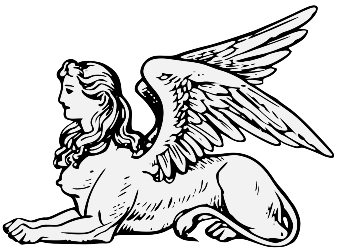Most mythologies order the structure of the world according to a set of elements. While the number of elements varies, most mythologies identify four or five of them.
Element Sets[]
- Babylonian mythology
- Earth, Sea, Sky, Wind
- Buddhist mythology: Catudhatu, "four elements"
- Air, Earth, Fire, Water
- Greek mythology
- Aether, Air, Earth, Fire, Water
- Hindu mythology: Pancha Mahabhuta, “five great elements”
- Aether/Void, Air/Wind, Earth, Fire, Water
- Japanese mythology: 五大 (go dai, "five great")
- Air, Earth, Fire, Water, Atmos
- Tibetan mythology
- Air, Earth, Fire, Space, Water
the Elements[]
Aether/Akasha/Space[]
In the West, sometimes perceived as the mysterious "fifth element" that relates to the soul.[]
- the substance that fills the heavens (Greek).
- the source of everything in the universe, including the other elements; related to sound (Hindu).
Air/Sky[]
- Associated with spring and the northern compass direction (Greek) or the northwestern compass direction (Hindu).
- Representative of things that move.
- According to Aristotle, primarily hot and secondarily wet.
Earth[]
- Associated with communication, business, practical matters, fall, and the southern compass direction (Greek) or the southwestern compass direction (Hindu).
- Representative of things that are solid or things that grow.
- According to Aristotle, primarily dry and secondarily cold.
Fire[]
- Associated with energy, passion, summer, the eastern compass point (Greek), or the southeastern compass direction (Hindu).
- Representative of things that are hot or things that destroy.
- According to Aristotle, primarily hot and secondarily dry.
Metal[]
- Associated with inward motion, persistence, determination, ambition, the west, autumn, and Venus.
Void[]
- Representative of things that are not normally encountered in everyday life.
Water/Sea[]
- Associated with emotion, intuition, imagination, wisdom, winter, the planet Mercury, the western compass direction (Greek) or the northeastern compass direction (Hindu).
- Representative of liquid things or cold things.
- According to Aristotle, primarily cold and secondarily wet.
Wood[]
- Associated with anger, patience, spring, the east, Jupiter, green, and wind.
Other "Elements"[]
the Four Humours[]
- Four "elements" of the body; excess or absence of a humour was considered the cause of disease.
- Yellow bile (fire)
- Black bile (earth)
- Blood (air)
- Phlegm (water)
the Seven Chakras[]
- Seven "energy centers" or "wheels" located on the spiritual body.
- Sahasrara (Crown): Thought/Space
- Ajña (Third Eye): Light/Dark
- Vishuddhi (Throat): Ether/Sound
- Anahata (Heart): Air
- Manipura (Navel): Fire
- Svadhisthana (Sacral): Water
- Muladhara (Root): Earth
